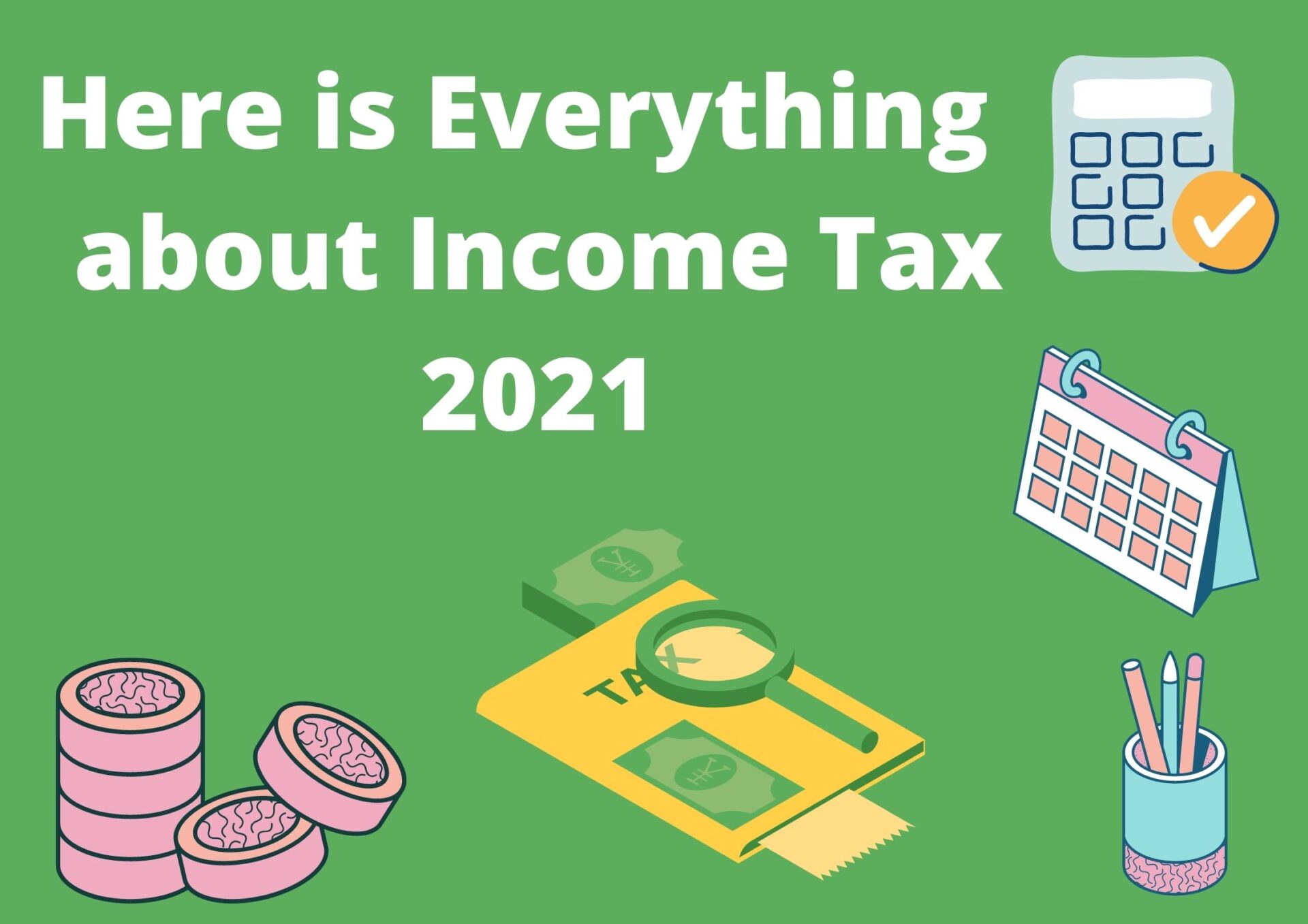
The Government of India presents a finance bill (budget) every year in the month of February. The finance budget brings various amendments in Income-tax Act,1961
The amendments are generally applicable to the next following financial year beginning from 1 April unless otherwise specified. Such amendments become part of the income tax act after the approval of the president of India.
On This Page
| 1. Income Tax in India | ||||
| 2. Who should pay income tax in India? | ||||
| 3. Types of income in India | ||||
| 4. What are income tax slabs in India? | ||||
| 5. How to save income tax in India on salary 2020-21 | ||||
Income Tax in India
Income tax is a type of tax that the central government charges on the income earned during a financial year by individuals and businesses. Taxes are mainly of two types, direct taxes and indirect forms of taxes. The tax calculation is based on the income slab rates applicable during that financial year.
Earlier Taxation has been a function of sovereign states since ancient times. The earliest archaeological evidence of taxation in India is found in Ashoka’s pillar inscription at Lumbini. According to the inscription, tax relief was given to the people of Lumbini (who paid one-eighth of their income, instead of one-sixth).
In the Manusmriti, Manu says that the king has the sovereign power to levy and collect tax according to Shastra:
लोके च करादिग्रहणो शास्त्रनिष्ठः स्यात् । — Manu, Sloka 128, Manusmriti (“It is in accordance with Sastra to collect taxes from citizens.”)
Who should pay Income Tax in India
Everyone who earns or gets an income in India is subject to income tax. (Yes, be it a resident or a non-resident of India ). For simpler classification, the Income-tax department breaks down income into five main heads
Any Indian citizen aged below 60 years is liable to pay income tax if their income exceeds 2.5 lakhs. If the individual is above 60 years of age and earns more than Rs.3 lakhs, he/she will have to pay taxes to the government of India. Additionally, the following entities that generate income are liable to pay direct taxes:
- Hindu Undivided Family (HUF)
- Body Of Individuals (BOI)
- Association of Persons (AOP)
- Local Authorities
- Corporate firms
- Companies
- All Artificial Juridical Persons
Types of Income in India
The income tax department has breaks the income into five category :-
| Head of Income | Nature of Income |
|---|---|
| Income from Other Sources | Income from savings bank account interest, fixed deposits, winning in lotteries is taxable under this head. |
| Income from House Property | Income earned from renting a house property is taxable under this head of income. |
| Income from Capital Gains | Surplus Income from the sale of a capital asset such as mutual funds, shares, house property, etc is taxable under this head of Income. |
| Income from Business and Profession | Profits earned by self-employed individuals, businesses, freelancers, or contractors & income earned by professionals like life insurance agents, chartered accountants, doctors, and lawyers who have their own practice, tuition teachers are taxable under this head. |
| Income from Salary | Income earned from salary and pension is taxable under this head of income |
Income Tax Slab in India 2021
Each of these taxpayers is taxed differently under the Indian income tax laws. While firms and Indian companies have a fixed rate of tax calculated on their tax profits, the individual, HUF, AOP, and BOI taxpayers are taxed based on the income slab they fall under.
| Income Tax Slab | Tax Rates As Per New Regime | Tax Rates As Per Old Regime |
|---|---|---|
| ₹0 – ₹2,50,000 | Nil | Nil |
| ₹2,50,001 – ₹ 5,00,000 | 5% | 5% |
| ₹5,00,001 – ₹ 7,50,000 | ₹12500 + 10% of total income exceeding ₹5,00,000 | ₹12500 + 20% of total income exceeding ₹5,00,000 |
| ₹7,50,001 – ₹ 10,00,000 | ₹37500 + 15% of total income exceeding ₹7,50,000 | ₹62500 + 20% of total income exceeding ₹7,50,000 |
| ₹10,00,001 – ₹12,50,000 | ₹75000 + 20% of total income exceeding ₹10,00,000 | ₹112500 + 30% of total income exceeding ₹10,00,000 |
| ₹12,50,001 – ₹15,00,000 | ₹125000 + 25% of total income exceeding ₹12,50,000 | ₹187500 + 30% of total income exceeding ₹12,50,000 |
| Above ₹ 15,00,000 | ₹187500 + 30% of total income exceeding ₹15,00,000 | ₹262500 + 30% of total income exceeding ₹15,00,000 |
How to save income tax in India on salary 2020-21
Maximize your tax savings in the following ways
